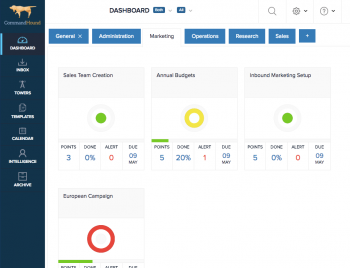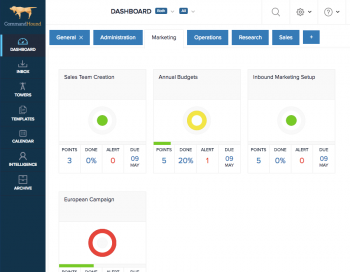The concept of tying compensation to accountability seems simple enough on the surface. However, making it real is way harder than it looks. And the biggest challenge is deciding what to measure performance against.
Insights: Management
First, let’s agree that meetings are a reliable and efficient way to get teams aligned behind a common objective or goal. Let’s also agree that, if not carefully managed, meetings can quickly unravel into a massive waste of time.
The annual performance review is an excruciating ritual that has been around for a really long time, but, in 2017, it’s just not cool anymore.
It is a 20th century model that just doesn’t work for the 21st century. Managers see them as time consuming and not always reflecting employees’ real contributions. Employees, especially millennials, can find them demeaning and unfair.
But how can we provide the feedback that is essential to an employee’s growth without a review? And how can management gather and organize information on employee performance to use in human resources decisions?
The Harvard Business Review recently released an article outlining how to identify high-potential employees.
Every manager has faced the disappointment of assigning a task to a team member and finding out that the task was ignored or slipped through the cracks.
Expanding the scope of a project is not a bad thing when properly managed. in fact, changing requirements, constraints, needs, context, or priorities in a project is more norm than rarity.
But a problem arises when change creeps into a project unnoticed. When project sponsors, project managers and team members realize that they are working on a bigger and more ambitious project than originally planned, and that they have begun to miss deadlines consistently and to exceed budgets, it’s probably too late.
Have you ever found yourself in meetings where the same issues and action items seem to get discussed over and over?
If the mechanics of documenting action items, defining a due date, and assigning it to somebody are in place then, why don’t things get done? Why do we need to talk about them again at subsequent meetings? There are actually some very simple steps you can take to make sure that your meetings stay on track.
When business owners and corporate leaders get together, it doesn’t take long for them to bring out the war stories of the difficulty of managing and retaining millennial employees.
We’ve all heard the complaints — They feel entitled to promotion regardless of the quality of their work. They have no loyalty. Their work ethic is sub par. Blah. Blah. Blah.
Have you ever taken a short break at work to read an article online and accidentally fallen into an internet rabbit hole, only to emerge an hour later, praying that no one noticed how disconnected you were from your work?
First, let’s agree that meetings are a reliable and efficient way to get teams aligned behind a common objective or goal. Let’s also agree that, if not carefully managed, meetings can quickly unravel into a massive waste of time.









